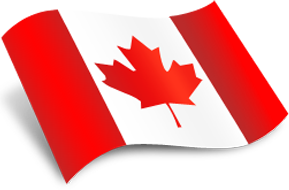
Handling Inheritance And Windfall Income
Handling Inheritance And Windfall Income

You can’t rely on them to solve your budgetary issues, but you can get a whole lot done with an inheritance. According to a 2014 study by BMO Bank of Montreal, the average Canadian inheritance package is worth around $96,000. British Columbians are especially lucky, receiving over $120,000 on average, while people in the Atlantic region can expect the nation’s stingiest inheritances with an average of just under $32,000. Inheritances are inherently unpredictable, but, short of a lottery win, they’re the largest windfall income that you’re ever likely to get. The problem is that most people are really bad with windfall income. Most lottery winners are broke within a couple of years of their win, and the bigger the jackpot, the harder the crash back to earth. Inheritors do better, but can still be prone to reckless spending. If a rich relative suddenly drops dead, be smart with your share of the estate. That Lamborghini won’t be much good if you’re too deep in debt to keep it fueled. This advice isn’t just for inheritances, either. It applies equally to any windfall income.
Take a Deep Breath
Your first step should be to wait, and not just to give you some time to grieve. The immediate temptation is to go out and spend all of the money on fast cars, dream holidays, or long-planned home renovations. This is a bad idea, and it’s why all those lottery winners burn through their winnings so quickly. Instead, take at least a week to let the initial rush pass and take stock of your financial situation. This is a great time to hire a financial advisor. Some financial advisors specialise in windfall planning, and they can help you to come up with a plan that puts your windfall to work. Your financial advisor can also help you through the tax implications of your inheritance. If you are the surviving spouse, your tax situation should be fairly straightforward. If not, inheritance tax can be a nightmare to deal with, so hire a professional. There is no harm in buying a few nice things with a big inheritance, but the main objective should be to improve your lifetime financial prospects, not just go on one epic shopping spree.
Debts First
According to a forecast by the credit-monitoring agency TransUnion, the average Canadian will owe almost $29,000 by the end of 2014, a figure that doesn’t include mortgages. Non-mortgage debt is quite unevenly spread, as are inheritances, but the even the average Atlantic Canadian could pay off all of their non-mortgage debt with their inheritance. They would even still have some money left over to go shopping with. As if this hadn’t been stressed enough elsewhere, unpaid debts are bad. They ruin your credit score, they invite debt collectors, and compound interest means that they get bigger the longer you leave them. A financial windfall offers you something very rare: the chance to wipe your financial slate clean without having to go bankrupt. Focus on high-interest debt first, your credit card in particular. With low interest debt like a mortgage, it can actually make sense to leave it unpaid. Mortgages can often carry penalties for early or lump sum payments, and it is also possible that you could earn more money by investing your windfall than by paying off your mortgage.
Invest the Rest
This is another area where your financial advisor will be invaluable. A windfall income is a good time to start or expand an investment portfolio. Take a low risk approach with a mix of stocks and investments that will generate income as well as growth. This is a great opportunity to max out your RRSP, including any allowance held over from previous years, and also a chance to build your emergency fund. Financial advisors tend to advise an emergency fund equivalent to six months’ living expenses, and most Canadians are nowhere near. If you are feeling particularly generous, this is also a great opportunity to start a college fund for a child or grandchild with a Registered Education Savings Plan (RESP).


